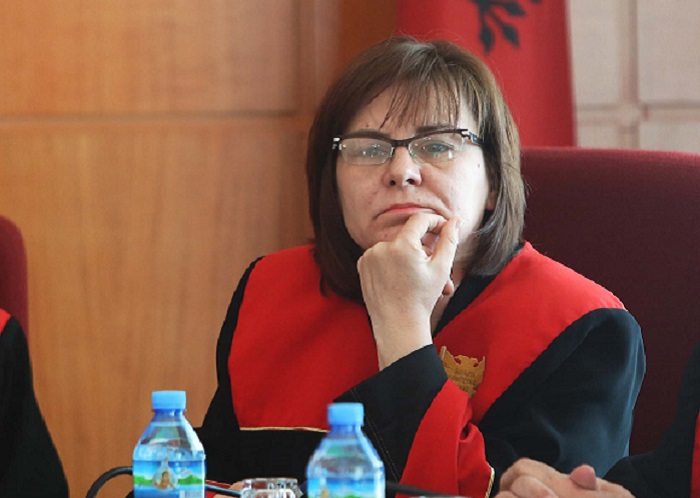
Both the Albanian government and the internationals have bet everything on the establishment of a new Constitutional Court after the summer. In a recent interview, US Deputy Assistant Secretary of State Matthew Palmer declared (confusing the High Court with the Constitutional Court):
What worries us is that there is no [Constitutional] Court. We would want that the Court is established. […] Precisely for this reason we would want that the [Constitutional] Court is established, comprising judges that have passed the necessary verification process.
As the Chair of the Justice Appointments Council (KED), Ardian Dvorani, has admitted recently, the bylaws passed by the KED do not require Constitutional Court candidates to have successfully passed the “necessary verification process” of a final verdict by the vetting institutions. This fact already puts in question the quality of the new magistrates appointed to the highest court of the country, which is expected to rule on politically sensitive cases such as the June 30 elections and the National Theater Law.
However, there seems now to be a considerable risk that even with the candidates approved by the KED, some of which have not yet received a final verdict of confirmation in office, the Constitutional Court will not become functional later this year.
The first problem is the one that I have pointed out before, namely that according to the transitory provisions of the Constitution, the new judges at the Constitutional Court are appointed by rotation:
Art. 179(2) The first member to be replaced in the Constitutional Court shall be appointed by the President of the Republic, the second shall be elected by the Assembly and the third shall be appointed by the High Court. This shall be the order for all future appointments after the entry into force of this law.
This means that without functioning High Court, a maximum of two new judges can be appointed to the Constitutional Court. Even though EURALIUS expert Klodian Rado advised the High Judicial Council (KLGj) to temporarily promote judges from lower courts to the High Court (which has only a single judge left), the KLGj recently decided to use the temporary promotion scheme only for the most urgent extradition cases.
Furthermore, the KED has not yet started to evaluate and rank the candidates for the vacancies at the Constitutional Court to be filled by candidates appointed by the High Court. This means that following the Constitution only two new candidates of those currently selected by the KED can be appointed: one by the President and one by Parliament.
But even if the Constitution were to be violated, and all the candidates approved by the KED proposed to President and Parliament were to be confirmed, there is a real risk the necessary quorum for plenary sessions of the Constitutional Court (6 judges) will not be met.
So far, the KED evaluated candidates for the following 6 vacancies:
- President (vacancy of February 7, 2018): Arta Vorpsi, Besnik Muçi, Regleta Panajoti, Elsa Toska
- President (early vacancy of February 7, 2018): Besnik Muçi, Regleta Panajoti
- Parliament (vacancy of February 12, 2018): Arta Vorpsi, Besnik Muçi, Elsa Toska
- Parliament (vacancy of August 28, 2018): –
- President (vacancy of March 4, 2019): Arta Vorpsi, Fiona Papajorgji, Elsa Toska
- Parliament (vacancy of March 4, 2019): Arta Vorpsi, Fiona Papajorgji, Elsa Toska
No candidate was approved for the vacancy declared by Parliament on August 28, 2018.
Approving all five candidates for all five vacancies would require coordination between President and Parliament, because not all candidates quality for all vacancies. Considering the current animosity between the two institutions, this seems unlikely. But even if President and Parliament were to coordinate their efforts, the Constitutional Court would still be one candidate short of a quorum to pass judgment. This means that the entire nomination procedure would have to be restarted, with all the delays that entails.

